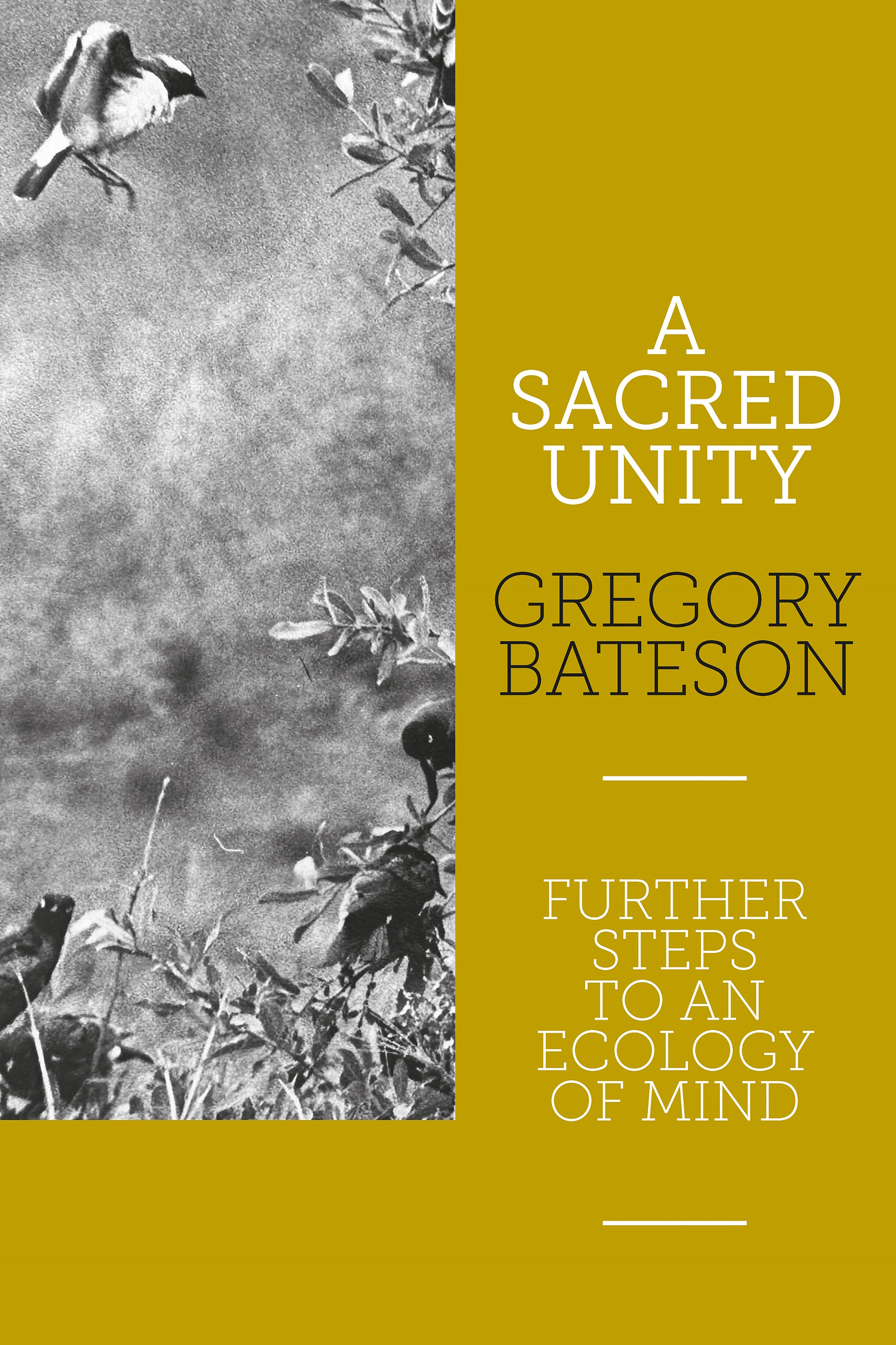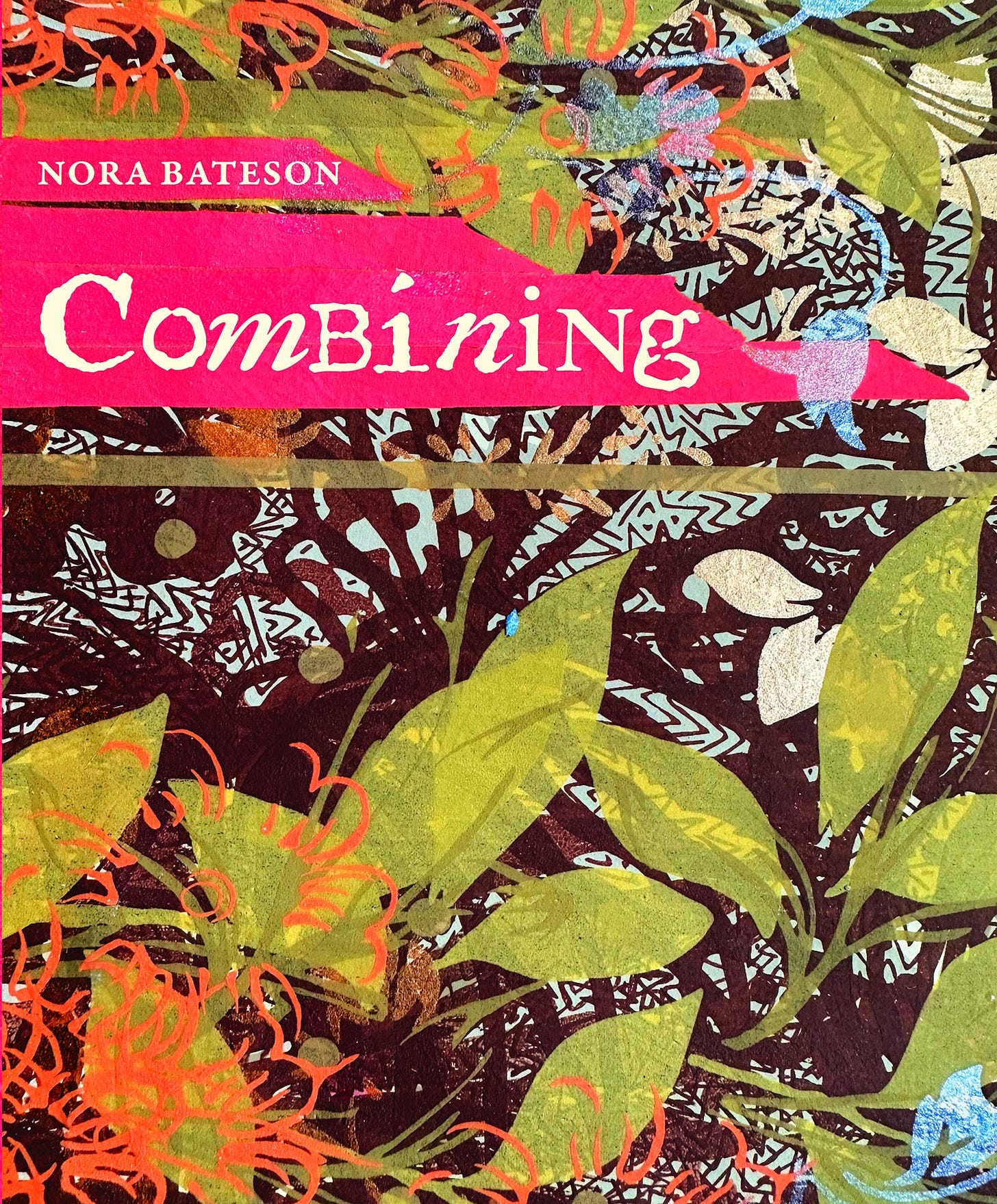Double Binds
Entry 92 in the Triarchy Press Idioticon
92. Double Binds
We all know what a double bind is: “a situation in which a person is confronted with two irreconcilable demands”, says Wikipedia.
But the double bind was originally defined by Gregory Bateson in A Sacred Unity as a dilemma in communication in which an individual (or group) receives two or more reciprocally conflicting messages. For example, the parent who, on the one hand asks the adult child to come and visit and on the other hand reproaches them by saying, “You only did it because I asked you to.” [GB coined the term in relation to a family situation in which schizophrenia emerges as a ‘solution’ to such mixed messages.]
It’s useful to look for this in our relationships. For example, we might say “I want you to express your emotions freely” and then we might react very badly when the other is openly angry

But the term has been broadened and expanded to include a different class of problem. Here are some common double binds from Nora Bateson’s Combining (paraphrased below):
Breakfast
Every morning worldwide, billions of breakfasts are prepared, served, and shared. There is so much for breakfast: pickled fish, or boxed cereal and toast, or rice and pork, or cappuccino and pastries, or eggs, or avocados, or noodle soups… But there is a double bind at the breakfast table. This extension of business as usual into each day is stepping ever closer to environmental, cultural, and economic suicide. On the one hand, to survive, we must feed our children breakfast. On the other hand, to feed our children, we must participate in inherently deadly systems − ones that pollute the land, destroy insect and other wildlife, reinforce injustice and wage inequality, heat the planet, etc.
People
On the one hand, services, be they social services, spiritual retreats, or self-help programs, are tasked with returning supposedly ‘broken’ and burnt-out people back to ‘normal’. On the other hand, they are essentially re-tooling people to get back into the workforce (and social roles) that ate them up in the first place. They are assigned to fix the people but not to restructure the system that is undermining the family, the natural world, and hope for the future. Social help systems perpetuate the systems that produce the need for social health systems.
And here’s one from my own experience of working to clean up our local river:
On the one hand, we need water and sewage companies to prioritise the ecosystem [water quality, all wildlife, oceans and all their inhabitants, humans’ needs for water, etc.]. On the other hand, we have set up water and sewage companies (in many countries) as commercial companies required by their constitution to prioritise shareholder profits. And many of us are shareholders (via our pensions or savings). We have a vested interest in maintaining the present, iniquitous system.
How Do You Get Out of a Double Bind?
Nora says: “To meet a double bind is not to try to solve it from any one direction. Instead, to meet a double bind is approaching it from another context, usually one not perceivable in the immediate struggle.”
Speaking of the example of social care, she goes on to say:
“To meet the double bind is to reach into another context and try new things together, with another approach, in another tone, and toward another idea of what is possible. It will not be the tone of ‘the experts will solve this problem’, nor the tone of ‘this problem is the fault of . . .’ Rather, it is in the tone of ‘no one can do this for us, let’s figure it out’…
Nature finds a way. People will also find a way… especially with a bit of support and encouragement. I have seen communities in abject despair find all sorts of unpredicted responses to needs they could not get government assistance for. They did this by improvising together. They met situations outside of normal channels and sourced from what they had on hand, no matter how sparse.
…The question is not how to make a better system but how to support people to learn together to meet crises…
There will be no community without first communing.”

Feel free to share it with anyone who might be interested.
And scroll right down to unsubscribe.


Hi Andrew,
Nora and Triarchy have made it to the Dutch newspaper NRC:
https://www.nrc.nl/nieuws/2024/01/18/dingen-zijn-altijd-complexer-verbondener-dan-op-het-eerste-gezicht-lijkt-a4187266
How nice. Maybe some extra Dutch orders.
Best, Hester
Enjoyed this thanks Andrew.
These more recent examples might also be considered as examples of reflexive links between different contextual stories (episodes of breakfast - and all the positions and complexity here - in a mutually influencing (but not necessarily of course equally) relationship with other contexts such as the broader ecological systems and so on. Some become tricky 'loops' (strange and charmed etc) that can leave us feeling stuck in patterns of meaning and action we do not prefer. The coordinated management of meaning (CMM) has some really elegant/sophisticated ways of making sense of these and exploring in detail how we might go on.
Kind Regards
Mark